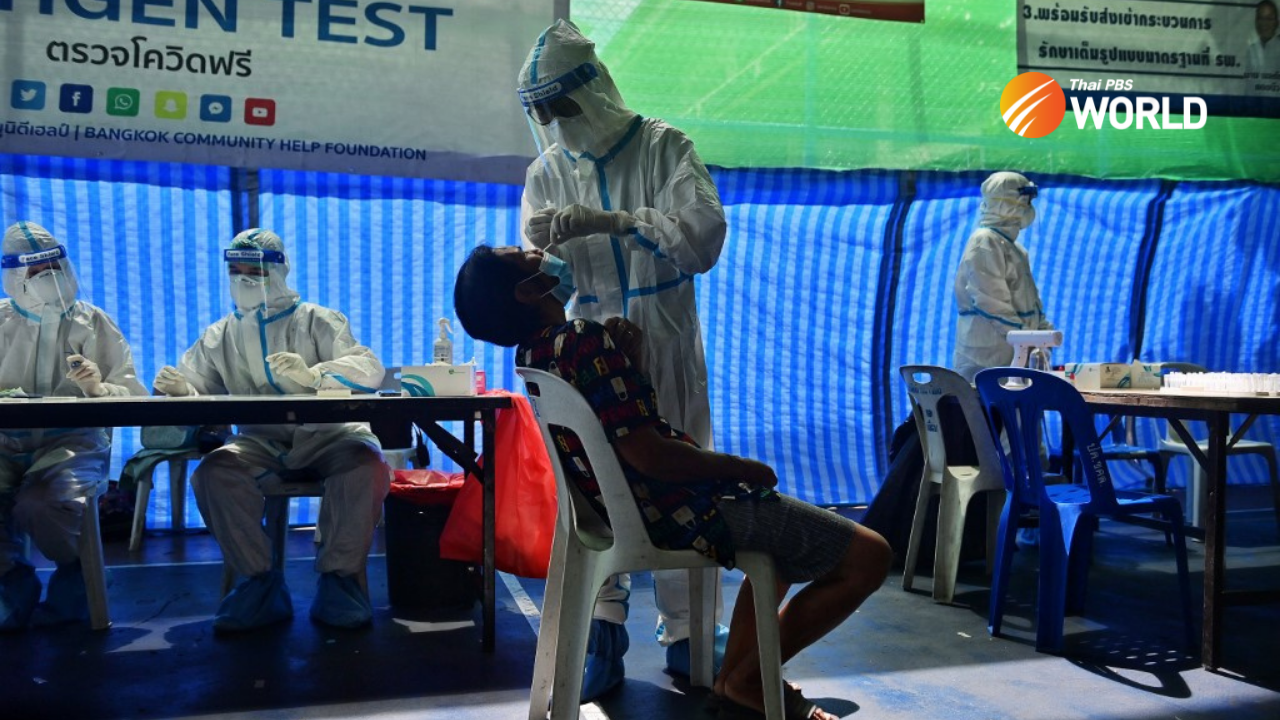
To the disappointment of all Thais, 2021 has been another year of COVID-19 outbreaks. Despite an accelerating mass vaccination drive across the country, the end of the pandemic is not in sight yet.
The first day of 2021 brought 194 new COVID-19 infections in Thailand – high enough to scare people back then. Thais started the year complaining loudly about the impact of lockdowns, an ongoing ban on international visitors, and the lack of vaccines.
However, worse was to come. The COVID-19 crisis deepened through the first nine months of 2021, hardship for millions.
Variant after variant
Early in the year, Thailand was rocked by its second wave of infections – but this was just a ripple compared to the tsunami of Alpha and Delta infections to come.
In early April, new cases were rising by several hundred per day. Two weeks later, the daily rate of infections had soared to more than 1,000 fuelled by the Songkran holiday. Scientists quickly confirmed the new wave was being driven by Alpha, a variant more contagious and deadlier than the original strain. Within weeks, it had become the dominant strain in Thailand.
Then came Delta, and the worse health crisis Thailand has faced so far during the pandemic. Even more virulent, it rapidly dethroned Alpha, claiming hundreds of lives per day at its height. By the middle of July, infections had soared above 10,000 per day and the daily death toll rose past 100 for the first time.
With hospital ICUs swamped and ventilators in short supply, reports emerged of people dying on the street from COVID-19.
In late August, the Public Health Ministry introduced home isolation to ease the burden on medical facilities and prioritize emergency treatment of seriously ill patients.
In the year up to September 30, about 1.6 million people caught COVID-19 and more than 16,000 died of the disease in Thailand. Most of these cases were reported from the second quarter onward.
Reversing trend?
As mass vaccination gained momentum, COVID-19 infections began to drop. By October, deaths per day had fallen below 100 and new infections below 10,000 for the first time in weeks.
Lockdown measures were eased significantly towards year-end, spurring optimism and the resumption of daily routines like shopping, dining out and catching up with friends in person. Holidays were planned, while offices and venues reopened for business.
Thousands of schools also resumed on-site learning, confident that most students aged over 12 had been jabbed against COVID-19 by late 2021.
By December 29, daily infections had dropped to 2,575 with only 17 deaths.
Omicron emerges
The respite looks set to be short-lived, though, thanks to the arrival of the most infectious strain of novel coronavirus yet seen.
On November 26, the World Health Organization (WHO) designated Omicron as the latest variant of concern. Flagging the danger of celebrating over the festive period, it warned: "An event canceled is better than a life canceled."
Omicron contains a large number of mutations and is, therefore, more resistant to vaccines than other variants. BioNTech, the maker of Pfizer vaccine, has confirmed that its jab is significantly less effective against the new variant. Omicron was also found to be far more transmissible than Delta. And contrary to initial speculation, it can still be fatal – though the risk of hospitalization appears to be lower than from Delta.
Following the WHO's advice, the Bangkok Metropolitan Administration (BMA) has canceled festive events, including midnight prayers scheduled for New Year's Eve.
Brace for new surge
Private-sector New Year celebrations will still inject a festive mood, but deep down, Thais are now bracing for another COVID-19 surge.
As of Dec 29, more than 700 Omicron cases had been detected in Thailand, most of them imported.
The Public Health Ministry has raised the alarm, urging people to double down on COVID precautions. With that advice came an ominous warning: Omicron could trigger another wave of COVID-19 rising to 30,000 infections per day in a worst-case scenario.
By Thai PBS World's General Desk